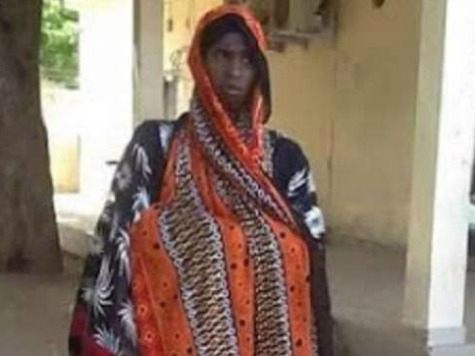The government of Chad is warning that anyone seen sporting a burqa–a full-face Islamic veil–will be arrested on sight, following a terrorist attack orchestrated by the Islamist group Boko Haram by a man disguised as a woman in a burqa. The attack left 15 people dead and 80 injured in N’Djamena, the nation’s capital.
The burqa ban “now must be respected more than ever by the entire population,” said Chadian national police spokesman Paul Manga following the attack. “The attack just confirms that a ban” is necessary, adding, “Anyone who does not obey the law will be automatically arrested and brought to justice.”
Boko Haram executed its first attack in the history of Chad’s capital in June, which triggered an immediate ban on the burqa and “religious turbans” that could potentially hide explosives. The ban forced shopkeepers to burn their entire supplies of banned garments, though police were apparently not as strict at targeting individuals who wore the item in public. Chad is a majority Muslim nation, currently observing the end of the holy month of Ramadan.
The use of men disguised as women is triggering a call for a similar ban in Nigeria, home nation of Boko Haram and its primary target. Chad, Niger, and Cameroon have become targets after pledging to join a military coalition with Nigeria intent on destroying the terrorist group.
While these recent attacks have involved men dressed as women, Boko Haram has more often used abducted women and girls as suicide bombers, forcing them to detonate weapons attached to their bodies in crowded Nigerian markets. They have also routinely used young boys as child soldiers, creating a situation where the Nigerian military is forced to arrest brainwashed children along with hardened adult terrorists.
In addition to the N’Djamena attack, Boko Haram attacked towns in both Niger and Nigeria over the weekend, attempting and failing to break fellow Boko Haram prisoners out of a prison in the town of Diffa, Niger, on Saturday. The attack, Reuters confirms, was ultimately thwarted, but nonetheless left three jihadists and one soldier dead. It is the second attack on that prison facility–the first in February. One source speaking to Reuters noted that a particularly frustrating aspect of this attack is the fact that, upon fleeing, the jihadists likely returned to Diffa. There, they may receive harbor from some Boko Haram sympathizers. At the very least, they appear to have managed to stay in the town for some time while escaping detection, as no villagers reported seeing the men enter the town before the attack.
In Nigeria, Boko Haram terrorists attacked a village near Maiduguri, the capital of northeast Borno state, and killed 11. i24 News notes that the attack involved “two bombers in a motorized rickshaw try[ing] to get into a busy bus station on Saturday morning. They were deterred by heavy security, however, and the attack happened nearby.”
The SITE Intelligence Group has confirmed that Boko Haram has taken responsibility for the attacks, issuing a statement on Twitter signed the Islamic State West Africa Province, the terror group’s official name since pledging allegiance to ISIS leader Abu Bakr al-Baghdadi.
Following the claim of these attacks, Boko Haram struck again on Monday, killing a member of Nigeria’s civilian joint task force at a checkpoint. Reuters notes that, since the inauguration of President Muhammadu Buhari in May, there has been a marked increase in the number of attacks by the terror group. Boko Haram has targeted Buhari, formerly a military dictator in the 1980s, for assassination, despite being Muslim, unlike former President Goodluck Jonathan.
Nigerian authorities told BBC last week that the Buhari administration “can’t rule out” the possibility of negotiating with the terrorist group, adding the caveat that previous negotiation attempts have failed. Boko Haram itself issued a statement offering to trade the more than 200 Chibok, Borno, schoolgirls kidnapped in April 2014 for hundreds of imprisoned Boko Haram terrorists.

COMMENTS
Please let us know if you're having issues with commenting.